Learn Arabic
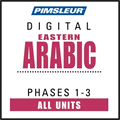 |
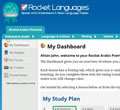 |
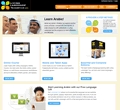 |
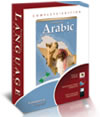 |
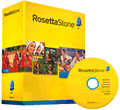 |
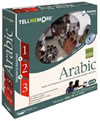 |
|
| Pimsleur Arabic | Rocket Arabic | Living Language Arabic | Transparent Arabic | Rosetta Stone Arabic | Tell Me More Arabic | |
| Your Rank | #1 | #2 | #3 | #4 | #5 | #6 |
| Your Rating | ||||||
| Learning Material |  |
 |
 |
 |
 |
 |
| Audio Lessons |  |
 |
 |
 |
 |
 |
| Language Games |  |
 |
 |
 |
 |
 |
| Word Tools |  |
 |
 |
 |
 |
 |
| Virtual Teacher |  |
 |
 |
 |
 |
 |
| Usability |  |
 |
 |
 |
 |
 |
| Features |  |
 |
 |
 |
 |
 |
| Ease of Usage |  |
 |
 |
 |
 |
 |
| Support |  |
 |
 |
 |
 |
 |
| Price Value |  |
 |
 |
 |
 |
 |
| Total Score |  |
 |
 |
 |
 |
 |
| Review | Read Review | Read Review | Read Review | Read Review | Read Review | Read Review |
| Lowest Price | $265.95 | $99.95 | $179.95 | $150 | $299 | $499/year |
| Website | Visit Site | Visit Site | Visit Site | Visit Site | Visit Site | Visit Site |
Notes
There are 221 million Arabic speakers worldwide, broken down across 30 colloquial variations. The language is recognized in two forms, Classical Arabic and Modern Standard Arabic (MSA). Classical Arabic, also known as Quranic Arabic, dates back to the 7th century and is the early Islamic language used to write the Quran. Modern Standard Arabic is based on Classical Arabic and has become the universal language of the Arabic-speaking world.
Modern Standard Arabic is spoken across the Arab League, the Middle East, and the horn of Africa and is one of the official six languages of the United Nations. While a number of scholars and publishers of classic Arabic text have tried to follow Classical Arabic, the demands of modernity have led to the adoption of numerous terms which fall outside the framework. Therefore, Arabic speakers conform to MSA when presenting to a mixed audience of Arabic speakers, such as on TV shows or during lectures.
Arabic is written from right to left, except numerals which are written from left to right. There are 28 letters in the Arabic alphabet, with some additional letters used when writing names of places or foreign words that contain sounds which do not occur in Standard Arabic, such as 'p' or 'g'. Similarly, additional letters are used when writing words from foreign languages. Arabic is a difficult language to write because letters change form depending on whether they appear at the beginning, middle or end of a word, or on their own.
Comparison Table
Arabic is usually spoken at a fast pace and with rich emphasis on certain syllables. This makes it not only difficult for non-native speakers to understand, but also difficult to master pronunciation. It takes considerable dedication to progress to a level of proficiency in Arabic, and it's not uncommon for students to quickly lose patience with their learning.
To combat this and remain undeterred, it's imperative to be disciplined with your study. Try undertaking achievable goals such as learning 2-3 words a day to begin with. Don't try to learn too much too quickly; set a pace you can cope with and focus on enjoying the learning experience.
To help with this endeavor, take a look at my comparison table above of Arabic home study courses. I have reviewed and rated the assets of the five top market contenders for your perusal. Such a course is not only a great place to begin your study, but also a way to ensure learning is fun. These courses contain word games and interactive study materials that will diversify your learning and immerse you in the language. Before you know it, you'll have learned 30 or more words and be well on your way to forming basic sentences in Arabic.
As you can see from the ratings table, Pimsleur is a wonderful course that ranks highly in all areas. However, as a beginner you might want to consider Rocket Arabic as a primary choice due to its competitive pricing. Transparent Arabic is a comprehensive, well thought out program, but doesn't provide enough additional value to warrant the 33% price margin. In any case, I'd encourage you to read my reviews and study the comparison table in detail. In my opinion the best way to choose a course is to consider your goals, current proficiency level and the type of learner you are, and then do your best to match those things with the courses on offer and see which one comes out on top.
Remember that this isn't an overnight endeavor. Learning Arabic is going to become a big part of your life over the coming year, so use my research to help you choose a pathway best suited to your expectations, budget and ability.

